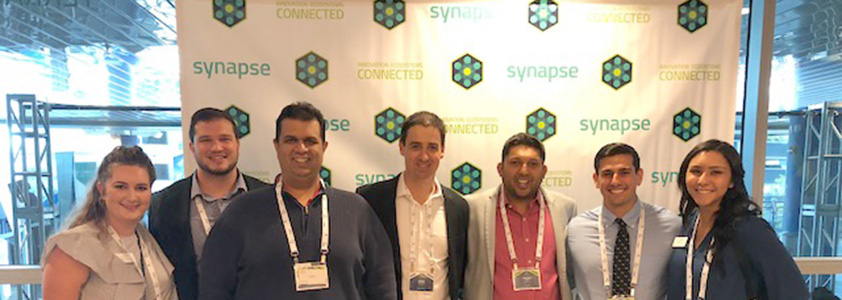 The Biweekly Deal Flow Update (#5) Curated by Zoic Capital, this newsletter is to inform, educate and attract individuals and companies to become a part of our community. Please subscribe and always feel free to send us tips or comments. Issue No. 5 highlights the exciting deals we’ve come across coming out of Y Combinator, as well as those advancing the trend in real-time diagnostics, monitoring and an accelerating level of indications that medical treatment is moving outside of the acute care setting. Additionally, we’ve collected a selection of our favorite articles this week; it appears that DNA kits remain popular even though criticism of their accuracy is prevalent. We again also see that Apple Inc. proceeds to deliver proof of it withholding a healthcare company within, and lastly, the entire list of startups that launched at Y Combinator’s W18 Demo Day, where biotech, robotics, and fintech startups took the early spotlight. For a deep-dive read this issue we’ve included an article titled, How can private companies leap forward during uncertainty?, from EY Global. It posits that: “Private companies are a key part of the world’s middle market, where the world’s fastest-growing engines for growth are to be found. While the latest World Bank Forecast estimates the global economy will grow by 2.7% this year, more than one in five private companies are on track to grow between 11% and 25%. With this growth comes new jobs, new wealth to support investment and dynamic approaches to innovation.” – Randall Tavierne & Liz Bolshaw, EY Global. Thanks for reading and I hope everyone has an enjoyable weekend… -Neal Mody -Zoic Capital |
| Four Deals For Friday Another trend in diagnostics is not just looking for chronic conditions and patient testing, but more real-time usage. For example, if a diagnostic device can, in real-time, determine the effects of medication, this can allow physicians much finer control over patient care. This can be during an emergency or critical care case where, currently, the effect of a medication can only be determined through systemic effects. This can either be inaccurate or too late. Being able to see what is happening, in real-time, at the molecular scale can significantly improve patient outcomes. Another possible use is for infections, especially with the concern with over-use of antibiotics, such as with Causeway Sensors. –Independent.ie  Several companies at the recent Y Combinator presentation were examples of several devices that could be a match for what we look for. This includes: Vena Medical: forward looking camera in a microcatheter. Patchd: remote monitoring of patients for sepsis risk. Aescula: heat sensitive materials for device design. For these companies, though, the most important of our metrics that we would look for are: 1. Is this device something so innovative tha t there is no competition for it right now or it is so much of an improvement that it creates new use scenarios and 2. Can it be a platform for other medical applications.  Wound care is also a significant field of interest, but it is not an easy one to innovate in. Wounds can be very difficult to heal, especially chronic ones and with an aging and/or diabetic population. There is always room for more effective treatments but, wound care can also be a highly commoditized field. New devices and digital monitoring can help wounds heal or be better kept track of, for example Swift Medical, a Toronto-based specialist in digital wound care management, which raised $11.6 million in a Series A funding. –Businesswire. However, these technologies and apps can often face challenges in payers and decreasing reimbursement. Treatment has been, and increasingly will be moved outside of the acute care setting. This is not just in the US, but even in European countries. This does represent an opportunity for more mobile, lower cost and user friendly devices that even patients can use and allow remote monitoring and diagnosis. Even on the service front there is more movement. For example, Accolade, a Plymouth Meeting, Penn.-based on-demand health care concierge company, raised $50 million in funding. Accolade will fuel growth of its healthcare technology platform. –Geekwire Articles Of Interest From The Past Week: •How can private companies leap forward during uncertainty? –EY, building a better working world. •Everyone is buying DNA kits- here’s what you should know…-USA Today •More proof of Apple, Inc. being a Healthcare Co. Apple Watch + a deep neural network. –Link •Here are 64 startups that launched today at Y Combinator’s W18 Demo Day 1. –Techcrunch •What Crypto Bubble?! –Marketwatch •Hitler finds out he invested in Tesla bonds. –Caption Generator •Equity-Bond Correlation: A Historical Perspective. –Graham Capital •How would ETFs fare in a market downturn? –Finacial Times •74% of ETF market owned by BOJ •Retail appears to be holding steady •Analyst Report of Enron pre-collapse. Interesting to see the word choice, perspective and focus on potential…Enron Report.  Neal attending the Synapse, Innovation Summit 2018 this week. The summit stands as a great opportunity to meet investors, find top talent, and experience the cutting edge of business and technology. If you found this newsletter to be interesting, I encourage you to forward it on. If you’ve received this from a friend, please subscribe to keep up with future issues. Thanks for reading and please send us any tips or comments! Neal Mody Connect With Zoic Capital |
| Curated by the team at Zoic Capital. |

Blog
Y Combinator and the Advancement of Real-Time Diagnostics
© 2026 Zoic Capital.
Close Menu
Contact Us
113 Cherry St.
PMB 2981
Seattle, WA 98104-2205
E: hello [at] zoiccapital.com

